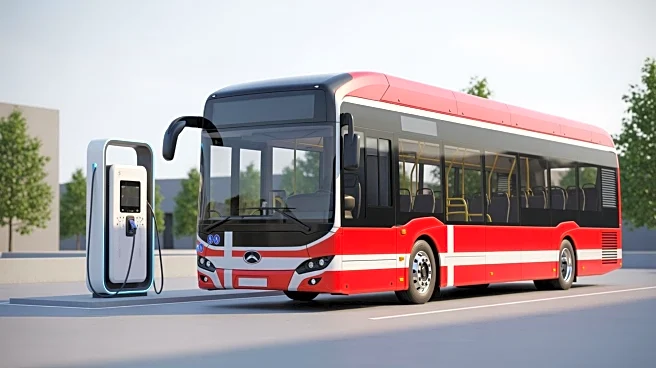What's Happening?
Denmark is taking urgent action regarding its fleet of 262 Chinese electric buses following a security concern raised in Norway. The issue arose when Norway's capital, Oslo, discovered that the Chinese-manufactured buses, produced by Yutong, could be
remotely accessed and potentially shut down by the manufacturer. This discovery has prompted Denmark's largest public transport provider, Movia, to reassess the security of its own fleet. The concern is not limited to buses but extends to all vehicles and devices with Chinese electronics, as they could pose a security risk due to potential remote access capabilities.
Why It's Important?
The situation underscores the broader implications of relying on foreign technology, particularly from China, in critical infrastructure. The potential for remote access to public transport systems raises significant security concerns, not only for Denmark but for other countries using similar technology. This incident highlights the need for stringent security measures and oversight when integrating foreign technology into national infrastructure. The reliance on Chinese electric vehicles, which are becoming increasingly popular in Europe, could pose risks if not properly managed, affecting public safety and national security.
What's Next?
Danish authorities are likely to follow Norway's lead by removing SIM cards from the buses to prevent remote access, though this will also block software updates. The Danish agency for civil protection and emergency management, Samsik, is prepared to advise on threat prevention and handling. This situation may prompt other European countries to reevaluate their use of Chinese technology in public transport and other sectors, potentially leading to increased scrutiny and regulatory measures.
Beyond the Headlines
The incident raises questions about the balance between technological advancement and security. As countries strive to meet clean energy targets, the integration of foreign technology must be carefully managed to avoid compromising national security. This situation may lead to a broader discussion on the ethical and legal implications of using foreign technology in critical infrastructure, potentially influencing future policy decisions.















